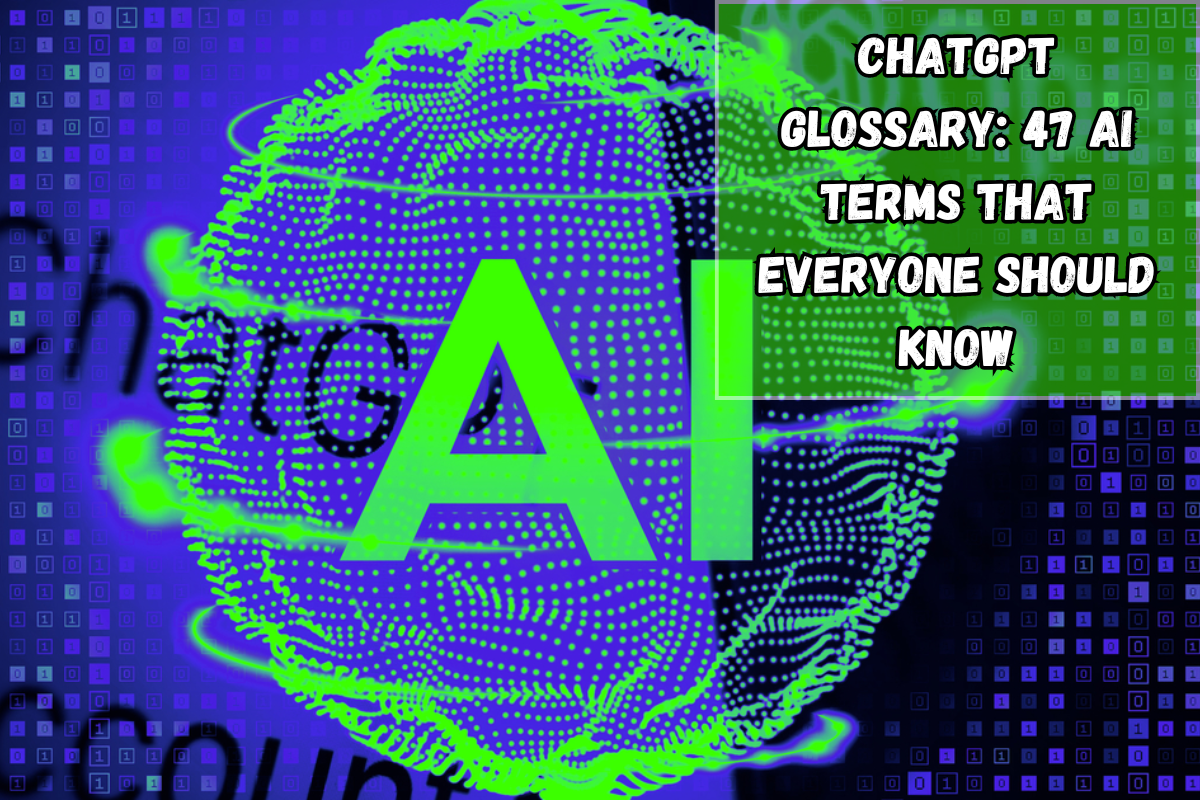ChatGPT Glossary: 47 AI Terms That Everyone Should Know
ChatGPT Glossary: 47 AI Terms That Everyone Should Know: Google, Microsoft, Apple, Anthropic, Perplexity, and OpenAI are all working on new AI models and systems, so it’s important to know all the new terms.
ChatGPT Glossary: 47 AI Terms That Everyone Should Know
When ChatGPT came out in late 2022, it totally changed how people looked for information online. People could suddenly have real conversations with machines. For example, you could ask an AI chatbot a question in natural language, and it would come back with new answers, just like a person would.
Because this was so revolutionary, Google, Meta, Microsoft, and Apple all started using AI in their goods right away. But that part of AI apps isn’t the only thing AI does. It’s cool to have ChatGPT help you with your homework or Midjourney make interesting pictures of mechs based on their home country, but generative AI has the ability to completely change economies.
This is why you will hear more and more about artificial intelligence: the McKinsey Global Institute says it could be worth $4.4 trillion a year to the world economy.
A very short list of goods that use it includes Google’s Gemini, Microsoft’s Copilot, Anthropic’s Claude, the Perplexity AI search tool, and gadgets from Humane and Rabbit. At our AI Atlas hub, you can read our reviews and hands-on tests of those and other goods, as well as news, explainers, and how-to posts.
New words are being used all over the place as people get used to a world where AI is a part of it. Here are some important AI terms you should know, whether you want to sound smart over drinks or in a job interview.
Atificial general intelligence, or AGI: AGI stands for “artificial general intelligence.” This is an idea for a more advanced form of AI than the one we have now, one that can do things much better than humans and also learn and improve itself.
Agentive: “Agentive” refers to systems or models that have the freedom to choose their own acts in order to reach a goal. In AI, an agentive model is one that can act without being watched all the time, like a high-level self-driving car. Not like “agentic” frameworks, which work in the background, agentive frameworks are in the foreground and focus on the user experience.
AI ethics: AI ethics are rules that try to keep AI from hurting people. This is done by figuring out things like how AI systems should gather data or handle bias.
Also See: How Generative AI is Impacting the Future of Work
AI safety: AI safety is a multidisciplinary field that looks at the long-term effects of AI and how it could quickly become a superintelligence that is hostile to people.
Algorithm: An algorithm is a set of steps that tells a computer program how to learn and look at data in a certain way, like finding patterns. It can then use what it has learned to do things on its own.
Alignment: Making changes to an AI to get the result you want more easily. This can mean a lot of different things, from controlling material to keeping interactions with people positive.
Anthropomorphism: anthropomorphism is when people tend to give alien things humanlike traits. In AI, this can mean thinking that a chatbot is smarter and more like a person than it really is, like thinking it’s happy, sad, or even alive.
Artificial intelligence, or AI: Artificial intelligence, or AI, is the use of technology to make computer programs or robots act smart like people. A branch of computer science that tries to make machines that can do things that people can do.
Autonomous agents: A self-driving agent is an AI model that has the skills, programming, and other resources to complete a certain job. A self-driving car is an example of an autonomous agent because it can find its way around on its own thanks to GPS, sensors, and driving software. Researchers at Stanford have shown that agents that can act on their own can create their own customs, cultures, and languages.
Click here for more information: click here



Why choose double glazed windows in Melbourne
triple pane windows http://bestnosefiller.com/triple-glazed-melbourne/ .
Double-glazed windows in Melbourne are popular for their insulation, reducing heat loss in winter and keeping homes cool in summer. They lower energy costs and minimize noise pollution, ideal for urban areas. Triple-pane windows offer even better insulation, improving energy efficiency and comfort, but are more expensive. Both options enhance property value and comfort, with triple-pane providing superior performance.